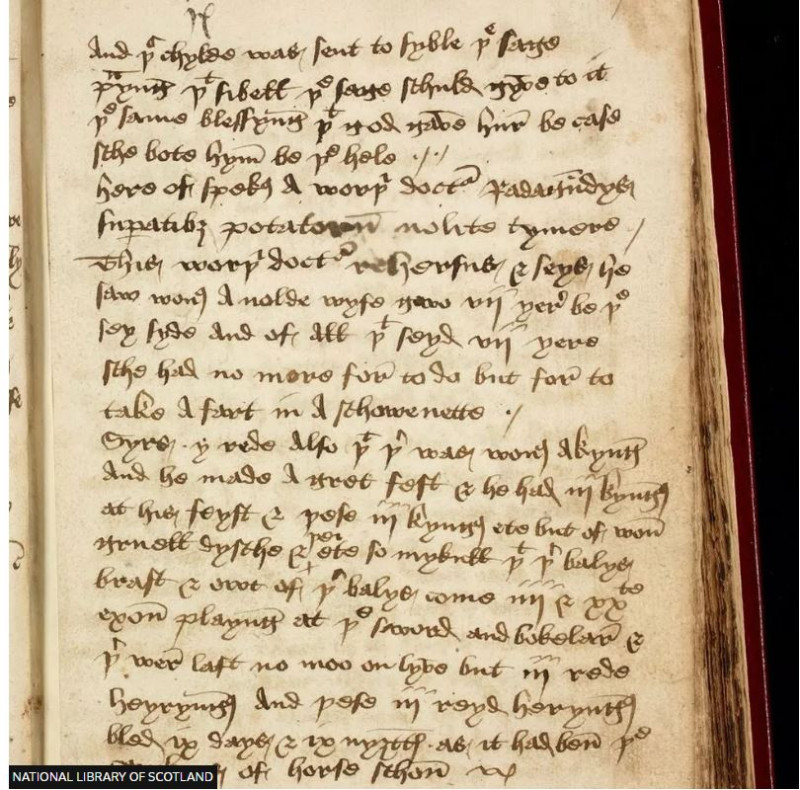Dr James Wade reported that the texts mocked kings, priests and peasants and encouraged the public to get drunk
A 15th-century manuscript offers detailed evidence of medieval comedy performances, according to a Cambridge University academic.
Dr. James Wade he explained to the BBC that the texts mocked kings, priests and peasants and encouraged the public to get drunk.
The manuscript also shows the role played by minstrels (entertainers, poets, lyricists who resided in the noblemen’s towers), who were considered “important figures” in medieval society. “These texts give us a snapshot of medieval life for those who lived well,” Dr Wade said.
The manuscripts were copied by the clergyman Richard Hedge, tutor to a noble family in Derbyshire. Dr Wade concluded that Hedge copied the text of an unknown minstrel who was performing near the Derbyshire-Nottinghamshire border in 1480.
Throughout the Middle Ages, minstrels traveled to fairs, taverns, and great halls to entertain people with songs and stories. Imaginary minstrels are common in medieval literature, but references to actual performers are rare and fleeting, the professor noted.
Dr. Wade said he had an “epiphany moment” when he noticed that the copyist had written “By me, Richard Hedge, because I was at that party and didn’t drink.’ “It was a fascinating display of humor and it is rare for medieval copyists to share so much of their character“, emphasized the professor.
“Stand-up comedy has always involved risks and these texts are risky, poking fun at everyone’s highs and lows.“, he pointed out.
Dr. Wade located the texts while doing research at the National Library of Scotland.
Source :Skai
I am Frederick Tuttle, who works in 247 News Agency as an author and mostly cover entertainment news. I have worked in this industry for 10 years and have gained a lot of experience. I am a very hard worker and always strive to get the best out of my work. I am also very passionate about my work and always try to keep up with the latest news and trends.











